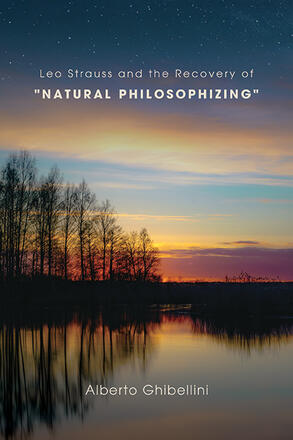
Leo Strauss and the Recovery of "Natural Philosophizing"
Alternative formats available from:
Examines how Leo Strauss sought to recover the question of "nature," which he saw as inseparable from genuine philosophy since its inception in ancient Greece.
Description
Among the political philosophers of the twentieth century, Leo Strauss is usually singled out for his attempt to revitalize the ancient approach to counter the relativism of both historicism and positivism. It is less commonly underscored, however, that the cornerstone of this attempt is the recovery of the question of "nature," which he regarded as inseparable from genuine philosophy since its inception in ancient Greece. Leo Strauss and the Recovery of "Natural Philosophizing" addresses such a theme, focusing on the theoretical presuppositions that Strauss found at the basis of the acquired inability to raise the question of nature. Prominent among these is the encounter between philosophy and revelation, which, due to their conceptual incompatibility, leads to a condition Strauss metaphorically described as a "second, 'unnatural' cave" characterized by insurmountable "prejudices" rather than "appearance and opinion." These, however, are the starting point of genuine philosophy in the Platonic "first, 'natural' cave," which has to be regained, by way of historical deconstruction of the presuppositions of the second cave, if the "natural philosophizing" embodied by Socratic dialectics is to be reactivated.
Alberto Ghibellini is Adjunct Professor of Law and Political Thought at the University of Torino, Italy. He is the author of Al di là della politica. Filosofia e retorica in Leo Strauss and the coeditor (with Charlotte Sieber-Gasser) of Democracy and Globalization: Legal and Political Analysis on the Eve of the 4th Industrial Revolution.
Reviews
"Ghibellini has a remarkable command of his subject, from Strauss's published work to all the archival material published in the last twenty years, including his correspondence with Karl Löwith and Gerhard Krüger. His study sheds a relevant light on the origin and development of Strauss's philosophic questioning from the most important and vital question for Strauss: what is the best life?" — Daniel Tanguay, University of Ottawa